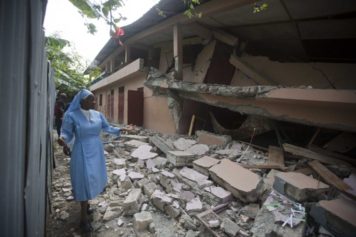ON JULY 5 the United Nations refused, again, to countenance the claims of 5,000 cholera-affected Haitians against it. The Haitians contend that grossly inadequate sanitation at a U.N. peacekeeping base introduced and spread the disease through the country’s waterways. The great weight of scientific evidence is on their side. The claimants seek millions of dollars in damages, installation of a sanitation network and an apology.
In a letter to members of the United States Congress who had urged the U.N. to take responsibility for the cholera outbreak, Ban Ki Moon, the U.N.’s secretary-general, reiterated that its legal office has decided the claims are “not receivable” because of the U.N.’s privileges and immunities.
The U.N. has offered little insight into its reasoning, except that consideration of the claims would involve a review of “political and policy matters.” That statement has only raised more questions, including whether “dumping disease-laden waste water in rivers is U.N. policy,” as a reporter asked at a press briefing last week.
Critics argue that the U.N.’s stance is tantamount to claiming impunity — that the U.N., an organization whose mission involves promoting the rule of law, is putting itself above it.
The Haitians’ lawyers now plan to sue the U.N. in Haitian and U. S. courts. If a court decides to hear the claims, the case could have far-reaching implications for peacekeeping practices around the world.
The disease was not documented in Haiti until October 2010, and even as the first perilously dehydrated patients arrived at hastily assembled clinics, reporters discovered filthy conditions at a nearby U.N. peacekeeping base.
From broken pipes and waste pits, sewage trickled and sometimes flowed into a tributary of one of Haiti’s major rivers. Since then, many scientific studies have provided strong support for the hypothesis that Haiti’s cholera strain came from Nepal. (The latest is a DNA sequencing study, published in July, which traced Haiti’s cholera strain to Nepal.)
A Nepali contingent of officers staffed the peacekeeping base at the time of the outbreak.
The bacterium, meanwhile, has killed nearly 8,200 Haitians and made unwell close to 665,000, about 7 percent of the population. Waterborne diseases spread fast in Haiti because the country lacks proper sewerage.
The rainy season is especially problematic, and although Tropical Storm Chantal did not make a direct hit on Haiti last week, the additional rain will probably cause cholera cases to spike…
Read more on the economist.com


